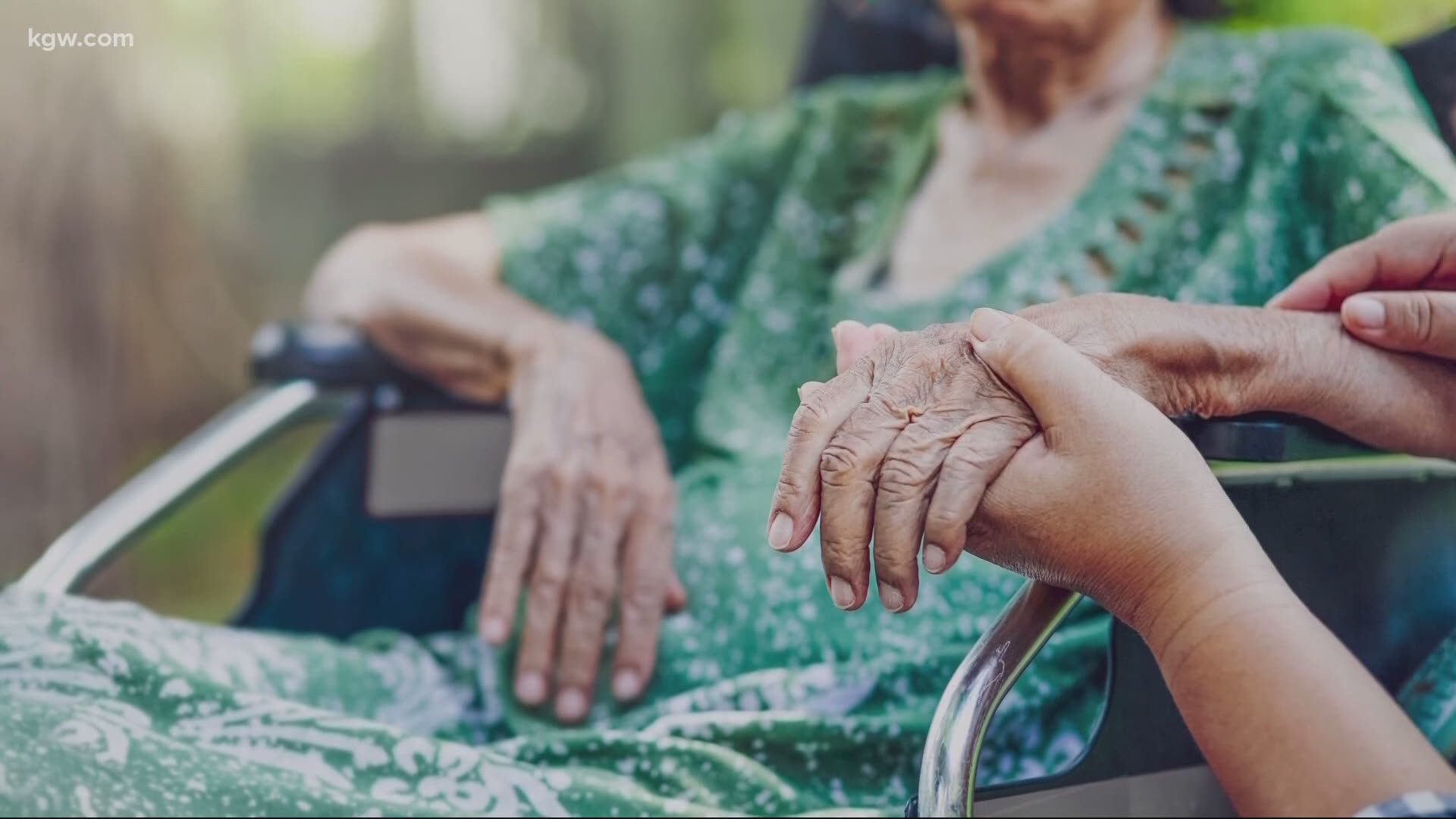PORTLAND, Ore — Since the start of the coronavirus pandemic, long-term care settings have been at high risk. Now, the union for people working in those facilities is pushing for changes.
Nearly two dozen care facilities make up the majority of COVID-19 deaths in Oregon.
As of May 3, OHA data shows 423 people living in care facilities and senior living communities had tested positive. Those cases account for about 15-percent of the total number of COVID cases.
Every day before clocking in at the care center where she works, CNA Tonya Funderburk runs through a rigorous routine.
“You have to wear a mask and face shield when you get into the building,” Funderburk said, “And then you go clock in and wash your hands and go down to the nurse's station to fill out a questionnaire they have for us to fill out. Then our shift can start.”
Every day, fear creeps in for the people she cares for, herself and her family.
“The fear is there to either bring it to the facility or bring it home and it’s on all of our minds,” Funderburk added.
Caregivers across the state are also concerned about missing work; if they feel sick or have been exposed to the virus they could miss a paycheck.
“A lot of our people are afraid to not come in because of no PTO. And we don't even get hazard pay as CNA's,” Funderburk said. “You have some people that are working sick because they don’t have the PTO.”
Fortunately, the care center where Funderburk works has not had any COVID-19 cases and has enough personal protective equipment (PPE). But that's not the case in all facilities.
During the pandemic, seniors, people with disabilities and workers in long-term care facilities have been most at-risk.
“If we don't have a special plan in long-term care then we'll have the continued impact that we've seen where more people are at risk,” SEIU Local 503 Executive Director Melissa Unger said.
That’s why SEIU 503, the union representing long-term caregivers, proposed short- and long-term changes to our state leaders on Friday, including Gov. Kate Brown and state legislators.
Long-term care workers are caring for people most at risk of catching and getting severely ill from the novel coronavirus.
Unger says as Oregon opens back up they want to make sure the long-term care system is lifted up and supported and has its own unique set of guidelines to keep workers and the people they serve safe.
“If we don't do it, more people that don't have to die will die,” Unger told KGW, “I think that’s the end result if we do not stand up and make sure that there’s the right procedures and systems and that workers and residents and community members are supported. The impact is very real and we know it.”
The list of asks includes:
- At least two weeks paid time off if a worker shows symptoms, tests positive, or has been exposed to COVID-19.
- Pandemic hazard pay.
- Enough PPE for workers in nursing homes and people's homes.
- More testing available at facilities.
- Increase in staff and training on specific care related to COVID-19 and post-COVID world.
“We deserve it, too,” Funderburk said, “We're not asking for anything anybody else isn't asking for.”
Unger says they're already working with some care facilities to improve safety for the workers, the people they care for and their loved ones at home.
The report SEIU 503 released Friday also includes recommendations for reforming the long-term care system moving forward.
“We need to make sure this conversation is ongoing. The reality is this is not a new problem. Long-term care has been overlooked for too long; the women and women of color who do this work are often left invisible. So how do we take this crisis and say that’s not good enough for the people we rely on to take care of our parents, our grandparents, our aunts, our uncles,” Unger said.

